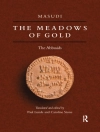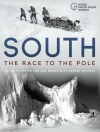This rich and elegant work describes how the unsettled cultural climate provided fertile soil for the flourishing of elegy. John Rosenberg shows how the phenomenon of elegy pervaded the writing of the period, tracing it through the voices of individuals from Carlyle, Tennyson, Darwin and Ruskin, to Swinburne, Pater, Dickens and Hopkins. Finally, he turns from particular elegists to a common experience that touched them all – the displacement of the older idea of the earthly city...
Tabela de Conteúdo
List of Illustrations; Acknowledgements; 1. The Age of Elegy; 2. Carlyle: History and the Human Voice; 3. Stopping for Death: Tennyson’s In Memoriam; 4. Tennyso...
Sobre o autor
John D. Rosenberg is William Peterfield Trent Professor of English at Columbia University of New York. He has received numerous awards and fellowships, including Ameri...












